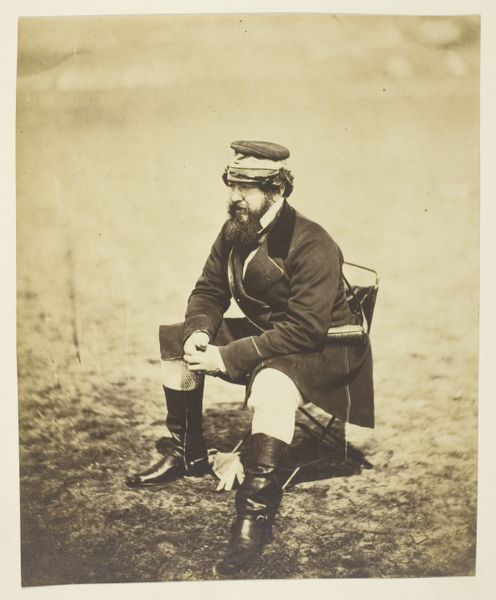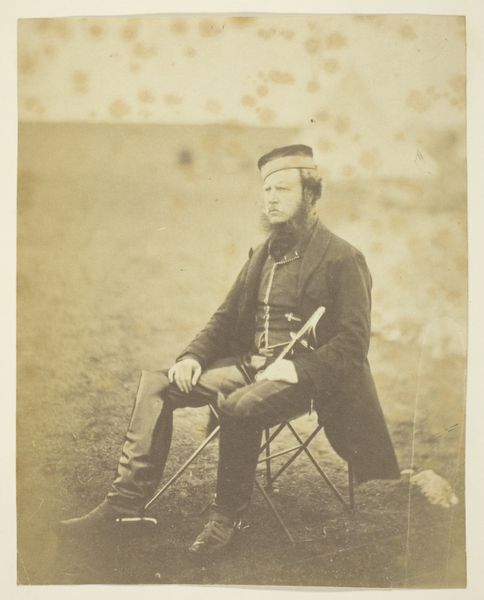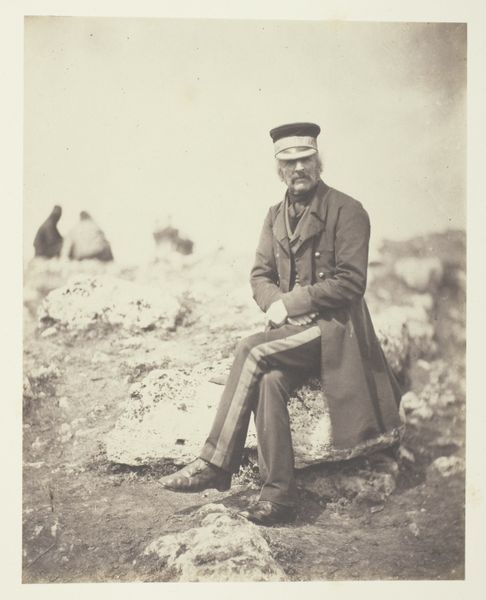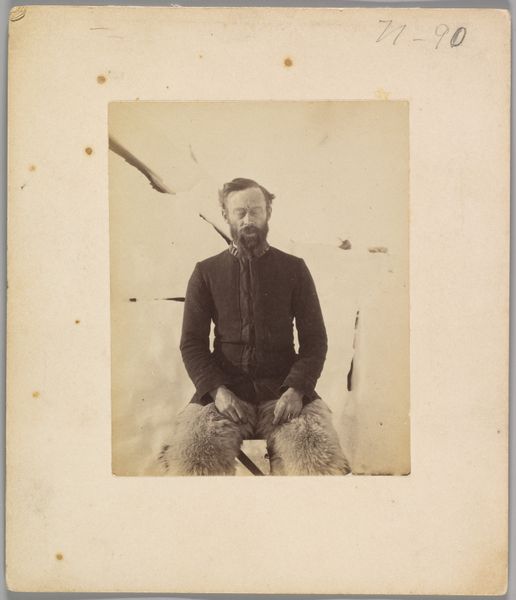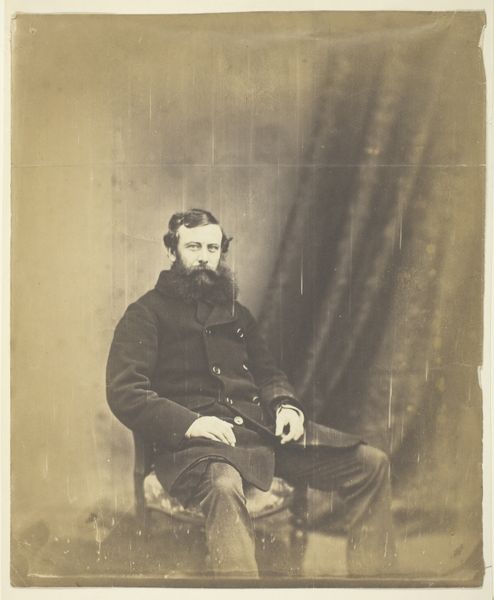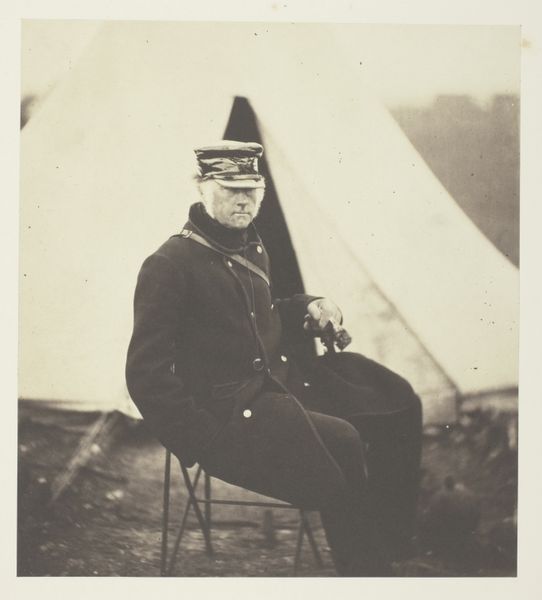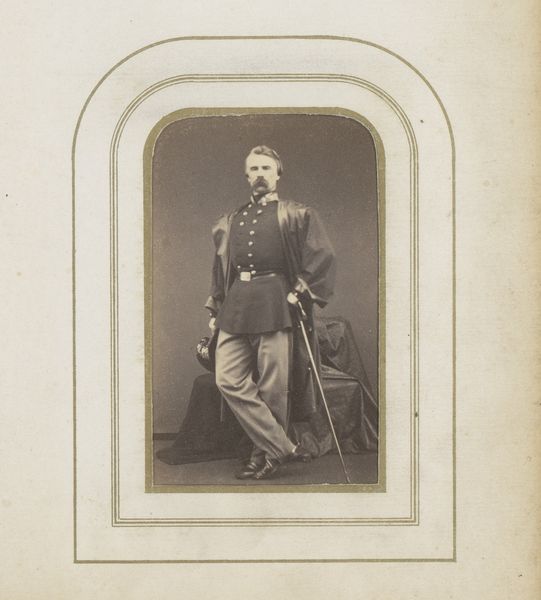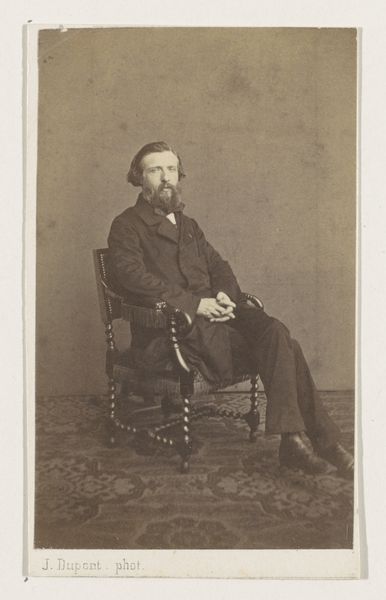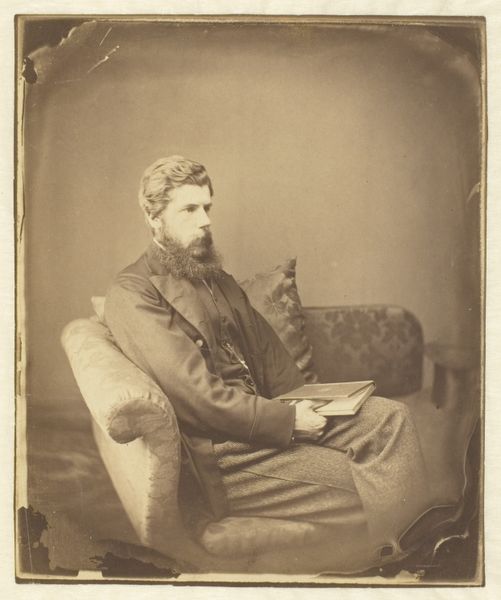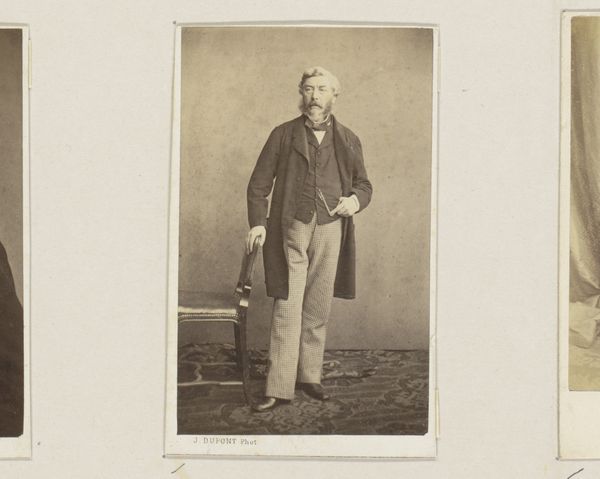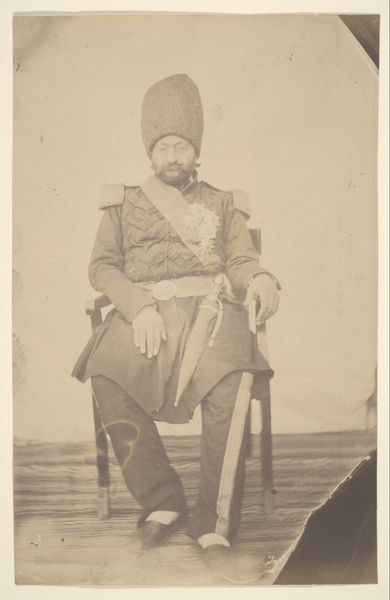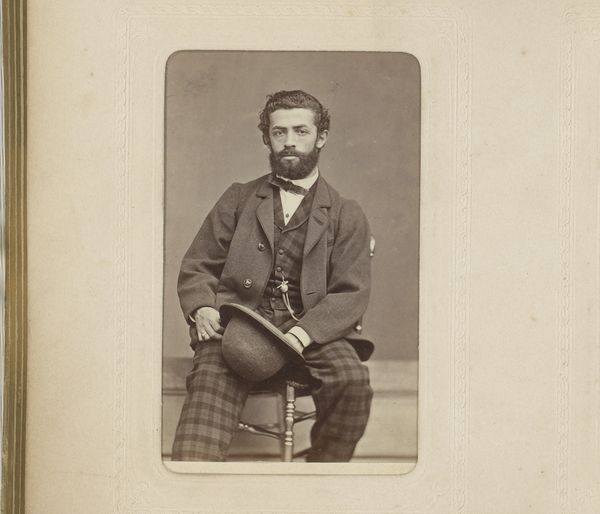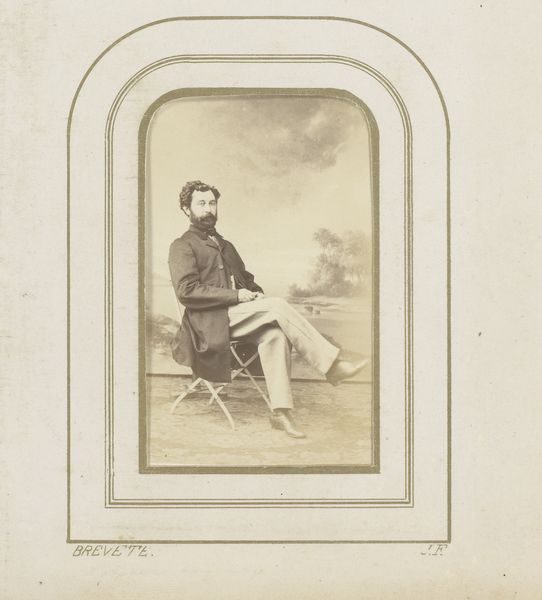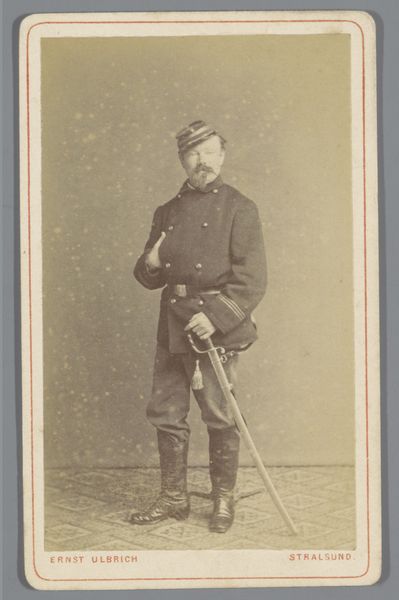
Archibald Gordon (1812-1886), Principal Medical Officer at the Crimea; Taken at the Crimea 1855
0:00
0:00
print, photography, albumen-print
#
portrait
#
16_19th-century
# print
#
war
#
photography
#
historical photography
#
england
#
men
#
genre-painting
#
history-painting
#
albumen-print
Dimensions: 18.5 × 16.6 cm (image/paper); 26.8 × 22.1 cm (mount)
Copyright: Public Domain
Curator: This albumen print, taken in 1855 by Roger Fenton, offers a portrait of Archibald Gordon, Principal Medical Officer during the Crimean War. Editor: The stark sepia tone lends a feeling of austerity to the scene. He seems weary, yet his gaze is unwavering. One can almost sense the weight of responsibility in his posture. Curator: Note how Fenton's use of natural light illuminates Gordon's face, drawing attention to the details of his expression. The contrast between light and shadow emphasizes the texture of his beard and the intricacies of his uniform. Editor: The photographic process at the time required long exposure, meaning Gordon would have to maintain a still pose. Knowing this detail heightens the poignancy. The very act of sitting for this portrait signifies a certain power, but also the restraints tied to 19th-century military portraiture in wartime. Was this image created for propaganda? Or memorial? Curator: Indeed. What interests me most is Fenton's precise construction. Look at the strategic placement of the spherical object behind him that echoes his figure, subtly shaping the composition. The framing adds a layer of complexity to the overall visual experience, don’t you think? Editor: Perhaps. But for me, it’s about understanding the social landscape of this photo, like what's beyond the frame. Gordon's stoicism tells a compelling narrative that contrasts starkly with our awareness of the Crimean War's brutal realities: class disparities in care and race disparities among casualties, with race often correlating with social class in army ranks. Curator: A fine point. By balancing the formal elements and historical context, Fenton created a lasting work, resonating far beyond its immediate subject. Editor: Yes. Remembering the social complexities provides a context through which the weight of that gaze becomes even heavier.
Comments
No comments
Be the first to comment and join the conversation on the ultimate creative platform.
